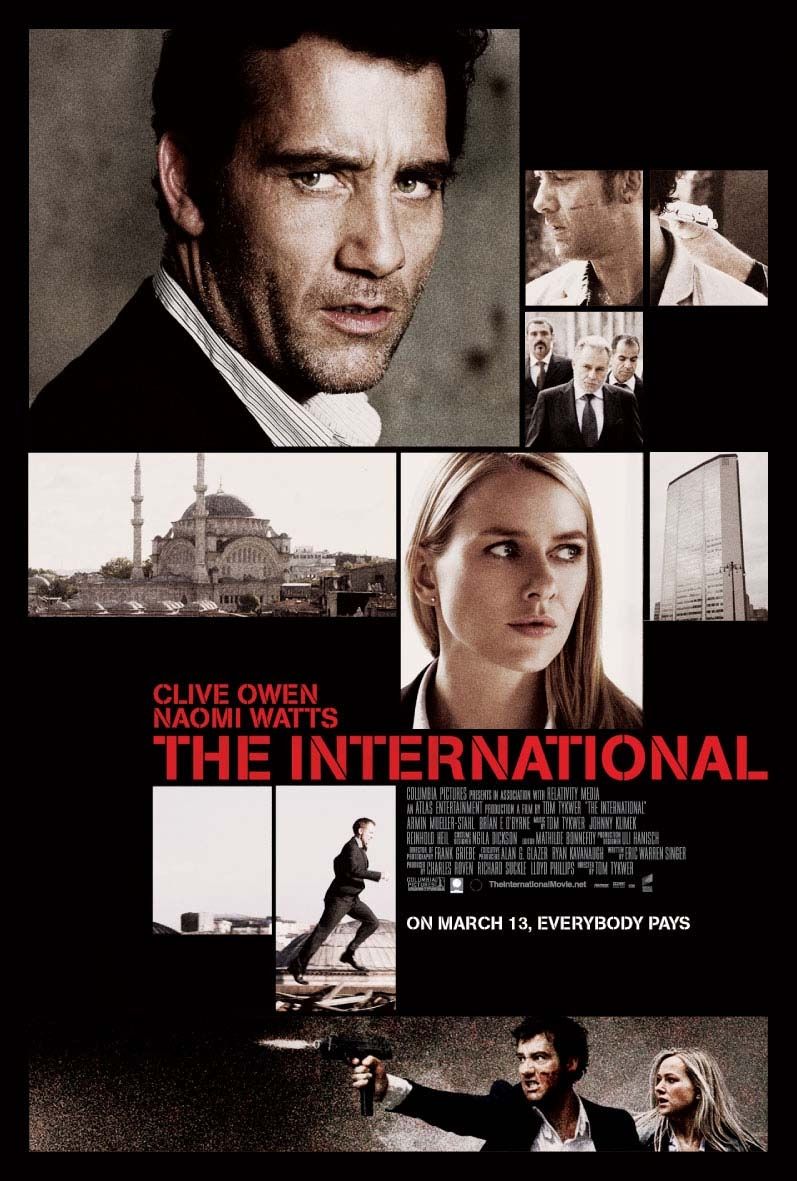The International: Movie Analysis applying neoliberalist policies
The International: Movie Analysis applying neoliberalist policies
The International, starring Clive Owens and Naomi Watts
(directed by Tom Tyker)
The International, starring Clive Owens and Naomi Watts
(directed by Tom Tyker)
MOVIE REVIEW with political analysis:
In the movie “The International”, Interpol agent Salinger and his partner, New York Assistant D.A Whitman, are consistently stonewalled by local law enforcement in their attempt to close in on the bank’s insiders. They uncovered that I.B.B.C, an international bank, is buying large amount of weapons, and which it then sells to some terrorist organizations. The bank is involved in certain illegal activities such us money laundering, arms trading and destabilization of governments. The IBBC is trying to become the world’s bank that all terrorist and third-world nations use when shopping for ill-gotten weapons. But since the IBBC’s network of assassins and corrupt officials remains elusive, that justice comes mostly in the form of stale platitudes. According to Sallinger “Sometimes a man can meet his destiny on the road he took to avoid it.” The plot seems perfectly suited to the dire financial times in which we live in, the opportunity is lost in what amounts to a competent thriller that becomes less plausible as it progresses. The plot of the film is plausible because international banks, such as the World Bank, and IMF, have the capability to control how a government could leads its people through the programs and rules that they make for some countries that borrow money in their banks. The IBBC is also described by Calvini as bank, which have the objective to control the debt that the conflict produces. According to Calvini, if you control the debt, you control everything. When we look at our present economy at the moment, we can see this is already happening. Banks are controlling the debts of third world countries, like the Philippines for example. The Philippines has gained enormous amounts of debt from the IMF, and so that the government could borrow more, the Philippine Government blindly follows the neoliberalist policies of the IMF, even though these policies may not benefit the country. The movie presented an international bank that does not only control the money of the people, but also controls the government. They control their lives, and as a result everybody pays. The very essence of the banking industry, to make us all, whether we be nations or individuals slaves to debt.



Leave a Reply